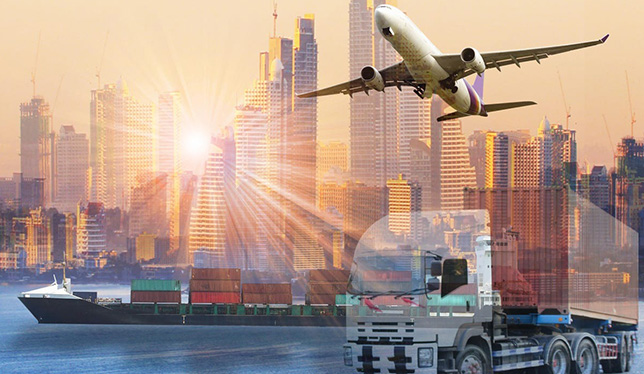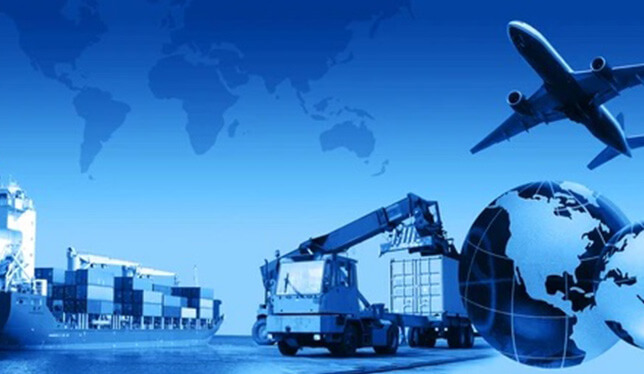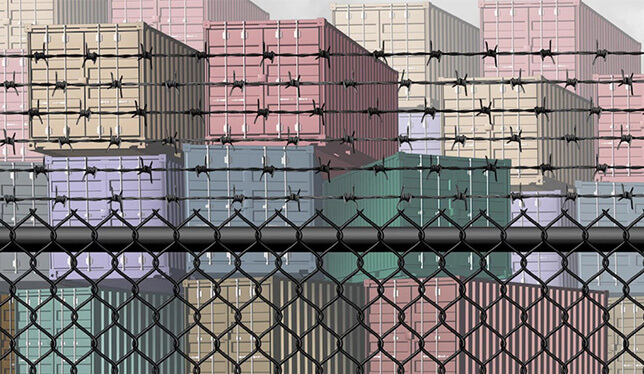Trade Remedy Laws

Antidumping Measures
Dumping is defined in the Agreement on Implementation of Article VI of the GATT 1994 (the Agreement) as the introduction of a product into the commerce of another country at less than its normal value. Under the Agreement, WTO Members can impose anti-dumping measures, if after investigation in accordance with the provisions of the Agreement, a determination is made.
‘that dumping is occurring, that the domestic industry producing the like product in the importing country is suffering material injury, and that there is a causal link between the two.’
In addition to substantive rules governing the determination of dumping, injury and causal link, the Agreement sets forth detailed procedural rules for the initiation and conduct of investigations, the imposition of measures, the duration and review of measures.
OUR SERVICES
Our experienced team have been providing antidumping services to companies is a number of jurisdictions for a long time. Over the period, we have developed expert knowledge on various issues relating to dumping/antidumping. Our experts keep our clients up to date on the developments that affect their business, help them interpret their significance and integrate product life cycle considerations into our clients’ business strategy. Our antidumping consultancy services include but not limited to:
Preparation of antidumping cases on behalf of local industry / applicant and pursuing the same with the Investigating Authority till the conclusion, which includes:- Examination and analysis of problems that domestic industries suffer in case of dumping.
- Assisting the domestic industries in collection of evidence for normal value / prices in the domestic market of exporters/foreign producers.
- Alternatively, following the normal value construction approach.
- Preparing injury claims by analyzing the operational results and financial position of the company over the likely period of investigation for the product concerned.
- Assisting the domestic industries in developing the causal link between the injury and the dumped product.
- Analyzing relevant import statistics vs domestic sales of the product concerned by the domestic industry.
- Assisting the applicant domestic industry at the time of on-the-spot verification.
- Attending hearings on behalf of the domestic industry.
- Making liaison with the concerned government authorities and industrial associations where necessary throughout the investigation.
- Negotiating for price undertakings, where necessary.
- Responding to various queries of the Investigating Authority on behalf of the domestic industry.
- Assisting clients in litigation.
- Providing technical assistance to fill in importers questionnaire.
- Giving oral and written submissions on the application filed by the domestic industry.
- Making liaison with the Investigating Authority.
- Representing importers in hearings before the Investigating Authority.
- Commenting on preliminary determination and other official documents issued by the Investigating Authority on behalf of the importers.
- Assisting clients in litigation.
- Reviewing the domestic sales, export sales, cost to make & sell data along with other relevant / supporting documents for making it part of the antidumping exporters/foreign producers questionnaire.
- Assisting the exporters / foreign producers’ in preparation and timely filing of questionnaire.
- On the basis of analysis of domestic & export sales as well as cost to make & sell, prepare a worksheet to see the impact of each adjustment in domestic price and export prices which would help in arriving at the net domestic prices and net export price at the ex-factory level of the product concerned for the calculation of dumping margin.
- Assisting the foreign companies at the time of on-the-spot verification.
- Giving oral and written submissions during the investigation including comments on the antidumping application filed by the domestic industry.
- Representing the exporters in hearings and disclosure meetings before the Investigating Authority.
- Making liaison with concerned Investigating Authority.
- Commenting on preliminary determination, other official documents issued by the Investigating Authority and on disclosure meetings on behalf of the exporters.
- Assisting clients in litigation.
- Reviewing the domestic sales, export sales, cost to make & sell data along with other relevant / supporting documents for making it part of the antidumping questionnaire for Pakistani exporters/ producers.
- Assisting the exporters / domestic producers of UAE / GCC in preparation and filing of questionnaire of the foreign Investigating Authority.
- Assisting the UAE / GCC companies at the time of on-the-spot verification.
- Giving written submissions during the investigation, as and when required, to the Investigating Authority of the importing country, including comments on the application filed by the domestic industry in the importing country.
- Representing UAE / GCC exporters in hearings and disclosure meetings before the Investigating Authority in the importing country.
- Making liaison with the Investigating Authority in the importing country, directly, or through our associate partner in the importing country.
- Commenting on preliminary determination, other official documents issued by the Investigating Authority, final disclosure documents etc and on the outcome of disclosure meetings on behalf of the UAE / GCC exporters.

Subsidies and Countervailing Measures
The Agreement on Subsidies and Countervailing Measures (“SCM Agreement”) addresses two separate but closely related topics: multilateral disciplines regulating the provision of subsidies, and the use of countervailing measures to remove the injury caused by subsidized imports.
Multilateral disciplines are the rules regarding whether or not a subsidy may be provided by a Member. These are enforced through invoking the WTO dispute settlement mechanism. More precisely, certain subsidies are prohibited, and some other specific subsidies may be challenged if these cause adverse effects to the interests of other Members. Definition of the term “subsidy” contains three basic elements:
- A financial contribution'
- By a government or any public body within the territory of a Member.
- Which confers a benefit to the recipient.
All three of these elements must be satisfied in order for a countervailable subsidy to exist.
Countervailing measures are a form of unilateral remedy, but it may only be applied by a Member after an investigation by that Member and a determination that the criterion set forth in the SCM Agreement are satisfied. The substantive criteria requires a Member not to impose a countervailing measure unless it determines that there are subsidized imports, injury to a domestic industry, and a causal link between the subsidized imports and the injury. In-depth procedural requirements regulate the conduct of countervailing investigations and the imposition and maintenance of countervailing measures. A failure to respect either the substantive or procedural requirements can be taken to dispute settlement and may be made the basis for invalidation of the measure.
OUR SERVICES
In the area of subsidies and countervailing measures, the range of our services includes:
Preparation of subsidy case on behalf of local industry / applicant (UAE / GCC) and pursuing the same with the Investigating Authority till the conclusion which includes:- Assisting in identifying the subsidy schemes prevailent in the exporting countries from which subsidized imports are coming.
- Assisting in collection of evidences of the identified subsidy schemes.
- Calculation of alleged subsidy margin.
- Preparing injury claims by analyzing the operational results and financial position of the domestic industry for the product concerned.
- Assisting the applicant companies in developing causal link between the injury and the subsidized product.
- Analyzing relevant import statistics vs domestic sales of the product concerned by the domestic industry.
- Assisting the applicant companies at the time of on-the-spot verification.
- Attending hearings on behalf of the domestic industry.
- Making liaison with the concerned government authorities and industrial associations where necessary.
- Negotiating for price undertakings, where necessary.
- Responding to various queries of the Investigating Authority on behalf of the domestic industry throughout the investigation.
- Assisting clients in litigation.
- Providing technical assistance to fill in importers questionnaire.
- Giving oral and written submissions on the application filed by the domestic industry.
- Making liaison with the Investigating Authority.
- Representing importers in hearings before the Investigating Authority.
- Commenting on preliminary determination, other official documents issued by the Authority on behalf of the importers.
- Assisting clients in litigation.
- Providing technical assistance to fill in foreign producers / exporters questionnaire.
- Calculation of actual subsidy margin, if there is any.
- Giving oral and written submissions on the application filed by the domestic industry.
- Making liaison with the Investigating Authority.
- Representing foreign producers/exporters in hearings before the Investigating Authority.
- Commenting on preliminary determination and other official documents issued by the Authority on behalf of the importer.
- Assisting clients in litigation.
- Analyzing the subsidy schemes prevalent in UAE / GCC and determining the extent of benefit derived therefrom by the exporters / producers, if any.
- Reviewing the cost to make & sell data along with the other relevant / supporting documents for making it part of the subsidy questionnaire.
- Calculation of actual subsidy margin, if there is any.
- Assisting the clients in preparation and filing of questionnaire of the foreign Investigating Authority.
- Assisting the clients at the time of on-the-spot verification.
- Giving written submissions throughout the investigation, as and when required, to the Investigating Authority of the importing country, including comments on the application filed by the domestic industry in the importing country.
- Representing clients in hearings and disclosure meetings before the Investigating Authority in the importing country.
- Making liaison with the Investigating Authority in the importing country, directly, or through our associate partner in the importing country.
- Commenting on preliminary determination, other official documents issued by the Authority, final disclosure documents etc and on disclosure meetings on behalf of the UAE / GCC exporters.

Safeguard Measures
The Agreement on Safeguards (“SG Agreement”) sets forth the rules for application of safeguard measures pursuant to Article XIX of GATT 1994. Safeguard measures are defined as “emergency” actions with respect to increased imports of a particular product, where such imports have caused or threaten to cause serious injury to the importing Member’s domestic industry (Article 2). Such measures, which in broad terms take the form of suspension of concessions or obligations, can consist of quantitative import restrictions or of duty increases to higher than bound rates. This is one of the three types of contingent trade protection measures, along with anti-dumping and countervailing measures, available to WTO Members.
The guiding principles of the Agreement with respect to safeguard measures are that such measures must be temporary; that they may be imposed only when imports are found to cause or threaten serious injury to a competing domestic industry; that these measures (generally) be applied on a non-selective (i.e. most-favoured-nation, or “MFN”) basis; that those be progressively liberalized while in effect; and that the Member imposing the measures (generally) must pay compensation to the Members whose trade is affected. Thus, safeguard measures, unlike anti-dumping and countervailing measures, do not require a finding of an “unfair” practice and generally must be applied on MFN basis. In its own words, the SG Agreement, which explicitly applies equally to all Members, aims to:
- Clarify and reinforce GATT disciplines, particularly those of Article XIX;
- Re-establish multilateral control over safeguards and eliminate measures that escape such control; and
- Encourage structural adjustment on the part of the industries adversely affected by increased imports, thereby enhancing competition in international markets.
OUR SERVICES
We also provide services to our clients relating to safeguard measures. When domestic industry of UAE / GCC is threatened to face serious injury due to sudden surge of imports of a particular product. We have the expertise to complete the challenging assignments in stipulated time period. The services include but not limited to:
Preparation of safeguard measures applications on behalf of local industry / applicant and pursuing the same with the Investigating Authority- Identification and analysis of problems being faced by the domestic industry/applicant.
- Preparation of various injury factors as given in the safeguard legislation by analyzing the operational results and financial position of the domestic industry with respect to the product concerned.
- Analyzing facts about various injury factors and firming up injury caused to the domestic industry.
- Collection and analysis of import data of the product concerned and its comparison with the domestic industry prices and sales volume to develop causal link of imports with the injury.
- Assisting the domestic industry during on-the-spot investigation by the officials of the Investigating Authority.
- Attending hearings on behalf of the domestic industry and responding to submissions by other interested parties.
- Making Liaison with the concerned government authorities and industrial associations where necessary.
- Responding to all queries of the Investigating Authority on behalf of the domestic industry.
- Assisting and guiding the exporters/foreign producers in preparation and filing of exporters questionnaire.
- Preparing and filing comments on the application filed by the domestic industry.
- Identify and submit other factors of injury to the Investigating Authority on behalf of the exporters.
- Assisting the client during on-the-spot investigation by the officials of the Investigating Authority..
- Attending hearings and make submissions and rebuttals on behalf of the exporters.
- Making Liaison with different government authorities concerning matters arising from filing of safeguard application by the domestic industry.
- Responding various queries of the Investigating Authority during the investigation.
- Guiding the importers to fill up importers questionnaire.
- Preparation and submission of written comments on the application filed by the domestic industry on behalf of the importers.
- Representing importers in hearings before the Investigating Authority.
- Making Liaison with the Investigating Authorities and concerned associations, if any.
- Preparation and submission of comments on provisional determination.
- Giving counter arguments on the injury claimed by the applicant with reference to various injury factors.
- Identification and submission of other injury factors to the concerned Authority.
- Responding all queries raised by the Investigating Authority during the investigation.